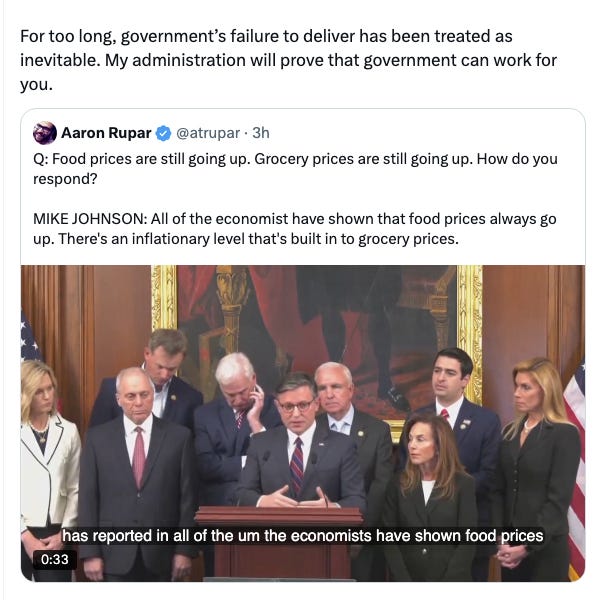You didn’t notice it at first.
At least, I didn’t.
Life just got smoother.
Your calendar filled itself. Your meals planned themselves. Your inbox answered half of itself while you were sleeping.
By 2026, your wedding vows could be AI-generated. Tone-matched to your relationship history. Peppered with references to inside jokes you’d forgotten.
Funerals, too.
You could choose from a library of eulogies.
Pick “warmly reflective” or “quietly reverent.” Insert the name. Tweak a few lines.
They were beautiful.
No one cried.
I remember sitting across from my friend Josh. His brother had died the week before.
We were in a diner, late. He hadn’t touched his fries.
“They’re all saying the right things,” he said.
I waited.
“They’re not wrong,” he added. “But it doesn’t feel like anyone is really with me.”
That line “They’re not wrong” stuck with me.
That was the world we’d built.
Flawless words.
Zero presence.
Work was no different.
My manager once told me, “I just love how AI saves us the hard part.”
At the time, I agreed.
No more staring at blank docs. No more awkward silences in meetings. You’d feed it the context, and back came five polished options. Strategy, message, framework. With footnotes, tone variants, and next steps.
The answers were excellent.
And slowly, no one cared.
I remember the day my team shipped a campaign that made no one proud, but everyone relieved.
“That’ll do,” someone said.
We all nodded.
No tension. No pushback. No spark.
It worked.
Which is how I knew we were in trouble.
It was at the end of 2027 that people started whispering stories about Elise Zhang.
She’d been head of strategy at a major brand firm. Brilliant. Sharp. Unpredictable in the best way.
Then one Monday, she didn’t show up to the 9:00.
No call. No message.
Someone found her laptop still on her desk.
Closed.
Untouched.
There was a note taped to the screen.
Not a resignation letter.
Not even a goodbye.
Just a question.
“What are we pretending is still working?”
No one removed it.
A week later, someone stuck another note next to it.
“What have I built that I wouldn’t choose again?”
It became a kind of altar.
People came by. Left notes. Whispered.
Not for answers. Just to feel something shift inside them.
At first it was just small things.
A meeting opened with a single question instead of a slide deck.
“What part of our work feels like performance?”
Everyone froze.
Then someone laughed.
Then they started talking. Not to solve anything. Just to be honest.
More teams started doing it.
Not because they were told to.
Because they missed the feeling of reality.
No one called it a movement.
Not yet.
But the atmosphere was changing.
I started seeing it in other places too.
At a wedding, the couple stood up and said,
“We wrote our vows without help. They’re imperfect. But they’re ours.”
Their voices shook.
They stumbled.
Everyone cried.
And at a leadership offsite. A room full of smart, polished executives. One woman paused and said,
“I don’t think any of us want this product to exist.”
Dead silence.
No one had the slides for that.
By 2029, a woman named Marla Roque built a platform called INK. A ledger for questions.
You didn’t sell answers.
You submitted questions.
If a group of human editors agreed the question held real weight, it was listed.
If someone used it, in a retreat, a team session, a breakup conversation, you got paid.
Not for being clever.
For being brave enough to ask what others were avoiding.
It caught on.
Not because it was efficient.
Because it brought people back.
I still remember my first submission.
“What if the way we’re growing is the thing that’s quietly killing our curiosity?”
It was used by a team that had doubled revenue and lost half their talent.
I didn’t get rich.
But I got a message from one of the designers.
“That question gave us permission to say what no one wanted to admit.”
And that felt like more than money.
The shift didn’t happen overnight.
There was no manifesto. No memo.
But little by little, the culture tilted.
Speed stopped impressing people.
Certainty became suspicious.
Curiosity, real, human, raw curiosity, became the most trusted signal in the room.
We stopped hiring for who had the best answers.
We started paying attention to who asked the kinds of questions you don’t get from a prompt.
Not the clean ones.
The ones that make a room go quiet.
Because by then, we’d learned the truth.
When knowledge is abundant and answers are instant,
the only thing left worth paying for
is the ability to ask the right question.
The kind that connects the dots you didn’t know were there.
The kind that cuts through the script.
The kind that makes someone say,
“I didn’t know how much I needed to hear that.”
I still work with people sometimes.
Founders. Artists. Parents. Couples.
I don’t give them answers.
I just help them find the question that’s already waiting inside them.
The one that scares them a little.
The one they keep setting aside.
The one that might unravel everything. Or rebuild it.
Maybe you have one too.
Maybe you’ve had it for a while.
Something like:
“What part of me is still waiting to be invited back into the room?”
If so, that’s the one.
Hold onto it.
And ask it out loud.
.png)








